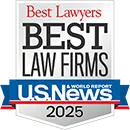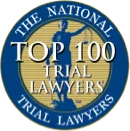During the COVID-19 pandemic, the responsibilities of employers may change. However it is important to ensure that the rights of the employees are not infringed upon. As the legislative landscape is currently changing in response to COVID-19, companies and employees must be aware of what is and is not permitted in regard to family leave and sick leave. Their workplace must still remain free from discrimination, including age and disability-based discrimination. In addition, health and safety and whistleblower protections are an integral part of a company’s response to a global pandemic and the rights of its employees.
If you feel your rights at work are being violated during the coronavirus pandemic, contact our attorneys for employment disputes related to COVID-19 in Washington D.C. Call Solomon Law Firm, PLLC at (866) 833-3529 to schedule a consultation.
What Your Employer May & May Not Do at This Time
The Equal Employment Opportunity Commission issued guidance on what employers can and cannot do when evaluating their workforce during the pandemic. An employer may not ask an employee if they have any preexisting health conditions or a compromised immune system that would make them more susceptible to COVID-19, as this is in violation of the Americans with Disabilities Act. However, employers may ask currently ill employees to not come to work if they are displaying symptoms of COVID-19, and an employer may also ask questions about an employee’s symptoms if they state they are feeling unwell.
An employer may not, however, ask about prior medical histories. Further, employers may not inquire about the age or national origin of their employees, even if they are attempting to identify which employees are “at risk,” as this is a violation of the Age Discrimination in Employment Act, Title VII and state and local anti-discrimination laws. Employers are also required to continue to provide reasonable accommodations to their employees under the ADA with special consideration for employees impacted by the virus.
Similarly, employers must still make sure they do not implement measures that are not the Health Insurance Portability and Accountability Act, or HIPAA, compliant. Employers should not reveal the specific identity of any employee who is diagnosed with or presumed to have contracted COVID-19, as they must still protect the confidentiality of their employees.
An employer should, however, notify their employees stating that there was a confirmed (or presumed) case of COVID-19 in the office, reiterating that employees should stay home if they are sick, and reiterating office policies. Other employees should be informed of possible exposure, however, per the Centers for Disease Control, or CDC, employers must preserve the confidentiality of the ill employee in line with the Americans with Disabilities Act.
New Workers’ Rights under the Families First Coronavirus Response Act
Individual employees have new rights, and employers have new responsibilities, under the Families First Coronavirus Response Act, which was signed into law on March 18, 2020, and will take effect on April 2, 2020. This Act will provide additional sick leave and paid family leave for employees whose jobs are impacted due to COVID-19.
The Family Medical Leave Act is temporarily expanded through the end of 2020 for employees to use if the employee cannot work, either in person or remotely, due to their need to take leave in order to care for their children, under the age of 18, whose school or place of care has closed or their childcare provider is unavailable due to COVID-19.
This expansion would grant up to twelve weeks of leave. An employer is now required to provide leave under FMLA if the employee has been with their employer for at least 30 days, and this period begins with 10 days of unpaid leave – though their employer may allow the employee to use paid leave in place. After that period, the employer must pay the employee at least two-thirds of their regular pay, which maxes out at $200 per day or $10,000 per employee. Employers can receive a tax credit for the employees who take this leave, and small businesses under 50 employees may be exempt if doing so would put their business at risk. The Department of Labor has indicated that additional legislation for small businesses may be forthcoming.
Qualifying for COVID-19 Sick Leave
In order to qualify for the COVID-19 paid sick leave as provided by the Families First Coronavirus Act, an employee must prove either they are impacted by the virus or someone in their care has been impacted.
The Act defines these criteria as an employee:
(i) Is subject to a Federal, State, or local quarantine or isolation order related to COVID–19;
(ii) Has been advised by a healthcare provider to self-quarantine due to concerns related to COVID–19;
(iii) Is experiencing symptoms of COVID–19 and seeking a medical diagnosis;
(iv) Is caring for an individual who is subject to an order as described in paragraph;
(v) Is caring for a son or daughter of such employee if the school or place of care of the son or daughter has been closed, or the child care provider of such son or daughter is unavailable, due to COVID–19 precautions the employee is experiencing any other substantially similar condition specified by the Secretary of Health and Human Services in consultation with the Secretary of the Treasury and the Secretary of Labor;
(vi) Is experiencing any other substantially similar condition specified by the Secretary of Health and Human Services in consultation with the Secretary of the Treasury and the Secretary of Labor.
Employees who take the leave because they personally fall under the criteria from points (i) through (iii) are entitled to receive their regular pay or minimum wage, whichever is higher, up to $511 per day or $5,110 aggregate. Employees who take this leave to care for someone else, under points (iv) through (vi), are entitled to two-thirds of their pay, which is up to $200 per day or $2,000 aggregate. Any employee is eligible to take this leave, regardless of how long they have been employed with their employer, and employers are not allowed to force employees to use up other types of leave prior to taking this leave.
OSHA Guidance During the Coronavirus Pandemic
The Occupational Safety and Health Administration, or OSHA, has also issued guidance on preparing workplaces for COVID-19. In the guidance, OSHA provides that each employer should address the level of risk for exposure for their employees and explains that employers must take at least basic infection prevention measures, such as promoting frequent hand washing (or the use of hand sanitizers if this is not possible), encouraging employees to stay home if they are ill, discourage employees from sharing work tools, and for non-essential employees, establish telecommuting.
If You Lose Your Job As a Result of COVID-19
Employees have rights in the event that their position is eliminated in light of the COVID-19 pandemic. If an employer is forced to lay off employees, they must ensure that they do so within the federal and state WARN Acts. The WARN, or Worker Adjustment and Retraining Notification, Act provides that employees must be given advance notice of mass layoffs, and if the employer does not, the employee may be eligible to back pay and benefits.
The WARN Act does provide exceptions if the layoffs occur due to unforeseen circumstances. However, employees should be given notice as soon as reasonably possible. Employers may also look to reduce hours or compensation for their employees, however, there are certain guidelines they must follow in order to not violate the terms of the Fair Labor Standards Act for exempt or salaried employees.
Whistleblowers Are Still Protected
Employees may also find the need to blow the whistle on unsavory and illegal workplace practices regarding the coronavirus. Whistleblowers may be able to file under the False Claims Act, which would cover fraudulent spending in the government and could also be extended to certain hospitals or healthcare providers.
Using the False Claims Act would also afford protection from retaliation against the whistleblower. Federal employees who are whistleblowers are also protected under the Whistleblower Protection Act and may be able to file claims through the Office of Special Counsel. There also may be state protections for whistleblowers, including public policy exceptions to employment-at-will doctrines.
Do You Need Legal Support?
The attorneys at Solomon Law Firm, PLLC can assist employers and employees navigate the new legislation and workplace practices in relation to COVID-19. Our experienced employment attorneys can assist employers in implementing new policies and ensuring they are in line with existing labor standards. Our attorneys can also assist employees if they believe they have been wrongfully terminated, laid off, or discriminated against in light of COVID-19.
Contact our attorneys for employment disputes related to COVID-19 in Washington D.C. by reaching out to us online to learn more about how we may be able to support your legal claim against an employer.











